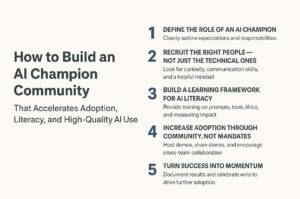Once upon a time in the bustling city of Innovatia, there was a project manager named Alex who worked at a leading tech firm, FutureTech Solutions. Alex was known for turning innovative ideas into successful projects. However, Alex’s latest assignment was a daunting one: to lead the development of a groundbreaking software solution that could revolutionize the industry.
The Spark of an Idea
The idea for the new software had been born during a brainstorming session. It promised to streamline operations for businesses, improve efficiency, and reduce costs. Enthusiasm buzzed in the air, but Alex knew from experience that an idea alone wasn’t enough. To transform this vision into reality, Alex needed a solid plan—a business case.
Laying the Foundation
Alex began by gathering the team and clarifying the objectives of the project. They needed to define the problem the software would solve and articulate the benefits it would bring. With a clear scope in mind, they identified the project’s goals and boundaries. This clarity helped in setting precise targets and ensuring everyone was on the same page.
Justifying the Investment
Next, Alex focused on justifying the investment required for the project. This step involved a deep dive into the financial aspects. Alex and the team analyzed the costs involved and projected the benefits. They calculated the potential return on investment (ROI) and crafted a compelling financial narrative. This detailed analysis was crucial for securing the necessary funding and support from the higher-ups at FutureTech Solutions.
Navigating Risks
Aware that every journey has its perils, Alex and the team identified potential risks that could threaten the project’s success. They brainstormed possible challenges and devised strategies to mitigate these risks. By preparing for uncertainties in advance, they fortified their project plan, enhancing the likelihood of a smooth journey.
Seeking Approval
With a robust business case in hand, Alex approached the executive board. The business case included a thorough analysis of different options, their impacts, and a clear justification for the chosen approach. The structured presentation made it easy for the board members to understand the project’s feasibility and strategic alignment with the company’s goals. The executives appreciated the comprehensive information, which facilitated informed decision-making.
Aligning with Strategic Goals
Alex ensured that the business case was not just about financials and risks. It also highlighted how the project aligned with FutureTech Solutions’ broader mission and vision. This alignment was critical for securing executive support and prioritizing the project within the company’s strategic initiatives.
Communicating the Vision
The business case also served as a powerful communication tool. Alex used it to convey the project’s rationale, benefits, and strategic importance to various stakeholders. Regular updates and transparent communication fostered collaboration and kept everyone engaged. Stakeholders appreciated the clarity and were more willing to support the project.
Measuring Success
As the project progressed, the business case provided a framework for measuring success. It set clear criteria for evaluating the project’s outcomes and benefits. This framework was essential for conducting post-project evaluations and ensuring that the anticipated benefits were realized.
The Happy Ending
Thanks to the solid foundation laid by the business case, Alex’s project journey was a successful one. The software was developed and launched, delivering on its promise to streamline operations and reduce costs for businesses. FutureTech Solutions celebrated another milestone, and Alex’s reputation as a stellar project manager was further cemented.
And so, in the bustling city of Innovatia, Alex’s story became a testament to the power of a well-crafted business case. It was a reminder that in the world of project management, a clear vision, justified investment, risk preparedness, strategic alignment, effective communication, and measurable success criteria are the keys to turning dreams into reality.

